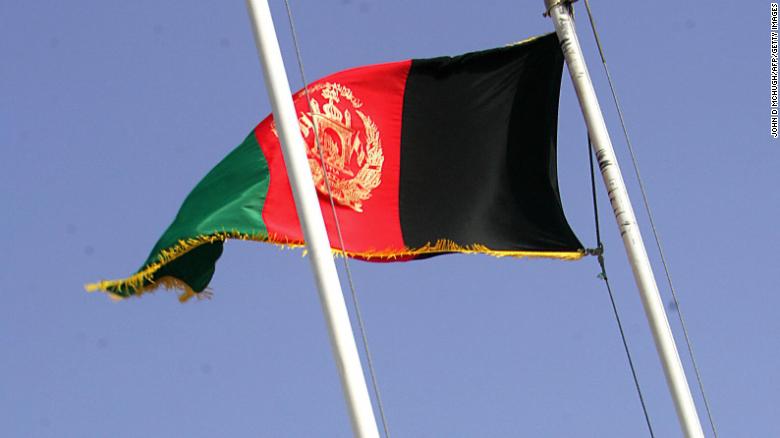By Kylie Atwood, Jennifer Hansler and Nicole Gaouette

Washington (CNN)The Biden administration has proposed to the Afghan government that they enter an interim power-sharing agreement with the Taliban in a letter from Secretary of State Antony Blinken to President Ashraf Ghani.
Blinken also proposed that Afghanistan's neighbors, including Iran, take on a greater role and warned that the Biden administration continues to review whether to withdraw US troops by a May 1 deadline set under the Trump administration.
The letter, sent via US Special Representative for Afghanistan Reconciliation Zalmay Khalilzad, offers the first real look at the Biden administration's thinking about Afghanistan, and appeared to reflect frustration as Blinken wrote that he wanted Ghani "to understand the urgency of my tone."
Despite ongoing talks between the Afghan government and the Taliban after a 2020 agreement between the US and the militant group, violence in the country has steadily increased.
State Department spokesperson Ned Price declined to comment on the veracity of the proposal or the letter, which were first published Sunday by the Afghan news service Tolo News. A US official and another diplomatic source familiar with the letter said it was authentic.
The situation in Afghanistan is a thorny one for Biden, who opposed an increase in the US presence there during the Obama administration and has said he wants to wind down US involvement in the nearly 20-year conflict. Biden could face domestic criticism if he does not follow through on the withdrawal, but at the same time, the country remains unstable, the Taliban have increased their control of wider swaths of the country and the gains made by women and girls are at risk.
Price told reporters that Khalilzad was in Pakistan on Monday. He declined to give a sense of how the meetings in the region were going nor did he say how Khalilzad's meeting with the Taliban went, saying he does not want to "prejudge" how the situation will unfold.
Asked if he believes the government of Afghanistan has engaged constructively on the peace process dialogue, Price said they are a "close and indispensable partner," but also said "it's also important that we have a unified approach from the Afghan government interlocutors."
"We are supporting and encouraging all sides to take advantage of this moment. That includes the Taliban negotiators, and that includes the Islamic Republic negotiators as well," he said.
"Our interest in this has been our interest throughout and it wasn't, it's not just this administration, wasn't just the last administration, it's been in fact two administrations before that, to find a means to quell the violence, and to find a political settlement, to arrive at a political settlement that is not fleeting but in fact is durable and is as just as it is durable," he said at a press briefing Monday.
Khalilizad was put into place as the chief US negotiator with the Taliban during the Trump administration, and the letter from Blinken made it clear that the Biden team has entrusted Khalilzad to continue to play a leading role in the talks.
"I have asked Ambassador Khalilzad, whose vital work President Biden and I asked that he continue to prepare and to share with you as well as with Taliban leaders written proposals aimed at accelerating discussions on a negotiated settlement and ceasefire," Blinken wrote.
Price also said Monday that "it is absolutely true that the United States has sought out ideas to advance the prospects for peace, the prospects to galvanize a durable peace, and again a durable peace that must be Afghan-led and Afghan owned."
"So it's certainly not that we're trying to be prescriptive. We are trying to support and doing everything we can to support the parties, doing everything we can to bring our international allies, to bring our international partners, to bring others in the region, together to make clear that all of us have a stake in Afghanistan's future security, stability, ensuring the durability of the gains, including the important gains for women and girls that have been achieved in recent years. But ultimately, this is an Afghan-led, Afghan-owned process, and we are there to support that," he said.
No comments:
Post a Comment